Graham Reid | | 11 min read
Marianne Dissard: L'embellie
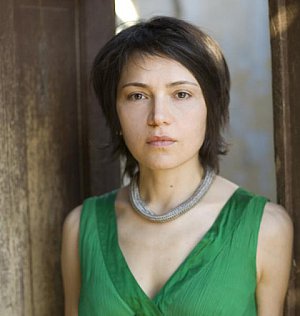
Marianne Dissard is a woman whose music confounds expectations, yet there is an impeccable logic to it: she is French but lives in Tucson, so there is an almost inevitable marriage of chanson and Americana on her album L’entredeux which was produced by Joey Burns of Calexico, who also wrote the music which envelops and supports Dissard’s poetic lyrics.
She in fact has also been a poet -- and a film-maker. And you get the sense that very soon quite a lot is going to happen for this woman who defies easy and conventional pigeon-holing. We pick up the conversation at her home in Tucson in mid September.
You have just been in Europe again?
Yes, I have not been very much in Tucson this past year, but I have now been here three weeks and it is starting to feel like home again.
I notice next week you start in New York and move on from there.
Yes, we are going to be on the road until December.
How did the last European leg go for you?
It went really well, that was the third time we went to Europe, certainly from France it was pretty cool. Every country had a different reaction when the album came out last Fall, and I didn’t think of that. But every country has its favourite song or favourite line-up on stage.
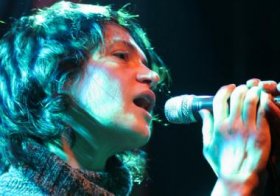 The French were of course very French about it, they didn’t embrace it at first and really had to think about what it meant and wonder, ’who is this person singing in French but it is not a French album‘. And obviously it’s not, because it is more Americana than French.
The French were of course very French about it, they didn’t embrace it at first and really had to think about what it meant and wonder, ’who is this person singing in French but it is not a French album‘. And obviously it’s not, because it is more Americana than French.
And then something shifted because I won this award in France for the lyrics and so they went, ‘Oh sure, it’s French’. It’s very cute.
And the Americans? You’ve lived there long enough to expect the reaction that, ’It’s a foreign language, so we don’t get it’?
You know, for them it was not a problem, probably because they’ve got a filter. If you are not French and you hear the French language being sung it will bring to mind images, or ‘is it sexy or sensual, or is it just that?’ and everybody has got pictures of Paris in their mind and so on. Especially that one song [Flashback] with the accordion.
So the Americans are not freaked out about not understanding lyrics. And anyway the shows I see here it is just a style not understanding lyrics. That’s not the main thing, it’s not a French thing, more a singer-songwriter tradition to really be able to understand lyrics. But a lot of music out there right now does not rely on understanding every word.
I agree. There were a lot of songs Keith Richards sang and I have no idea what he was saying.
I grew up listening to American stuff even before I spoke English, and even afterwards, and it was only years later that I could say, ’Oh, that’s what that girl said!’
You went to America at 16, with your parents?
Yeah, but America was not a big dream of mine. A lot of people at 16 would be like having their parents in tears at the doorstep and saying, ’I’m going to America!’ No, not in my case. I was just in high school in France and my parents decided one day that we would go.
My dad had got a job here and I think he was happy to provide this opportunity for all of us. I remember he used to come and work in America and he’d come back from Arizona especially and say it was amazing . . that at school here people were going to class in shorts and t-shirts. For him at the time that was amazing.
But as a 16-year old you were leaving behind your friends?
Actually no. When I think back to that time I was starting to turn into this shy and reclusive poetry writer. I had one friend I was sad to leave behind, but otherwise I was okay.
We came from the south west near Toulouse. When we came over it wasn’t to Tucson but to Phoenix the capital which is about 100 mile to the north.
Yes, I’ve been there and . . .
(Laughs) We’ve got this thing between Tucson and Phoenix which is a rivalry; they think of us as this dustball on the border and probably quite backward; and we think of them as money-grabbing capitalistic fools.
When did you gravitate to Tucson?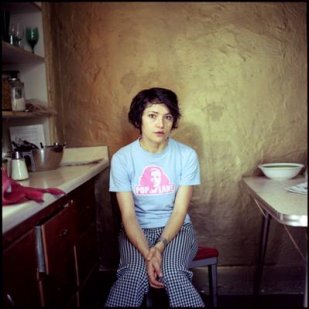
I first went to Los Angeles actually because I wanted to make movies. I left my parents house at 18 or 19 and went to there because I wanted to be working in Hollywood. But the thing that happened, which directed the rest of my American life in ways that I could not expect at the time, was the night before I left Arizona to move I went to a club where Giant Sand were playing.
You made a doco about them in ‘94.
I did, but I didn’t know their music at the time, it was just two guys playing in a club. It was interesting and they were really friendly and Howe [Gelb of Giant Sand], who was going to be on tour for a couple of months past that, was, ‘Go stay at my place in Hollywood if you are moving there, make yourself at home’.
That was such a chance encounter it was just amazing. Because once I moved in there I got a chance to listen to his music and go, ‘Wow! Pretty incredible’.
So after that I went to film school and decided the thing I really wanted to do was make a film on Giant Sand. That’s when I came to Tucson, and I’ve never left.
I’ve spoken to Joey Burns -- who used to be in Giant Sand -- in the past, and Calexico have been to New Zealand once to my knowledge, possible twice. I‘ve travelled around the States but have never been to Tucson. However the way he described it, it was a very supportive arts community, and the Calexico guys don’t seem to have many barriers between any kind of music. So you fell in with that community and them when you went to do the doco?
Yeah. Once I had finished the film I stayed because it was a good place to figure out what to do with my life. It was cheap to live here so that allowed me time too.
Another chance encounter a year after I moved here was I met this French guy in Paris [Naim Amor] and he was a guitar player in band. We fell in love and a way to connect was for me to write lyrics and for him to make songs out of them.
A few albums later we’d spent 13 years together and that was in Tucson because once he got a taste of that he was able to find something he could not find in France, a group of musicians to play with each other and reconfigure and be very supportive of each other. It is a great community for music.
I was a lyricist for 10 years and that made me very happy and I ended up writing some lyrics for Howe, and then Calexico was always there. Joey was always extremely supportive of the albums we were making.
They are a godsend for this community here.
So you started singing? You hadn’t really sung prior to that because you were a film-maker or lyricist?
Yeah, I was a poet who turned into a lyricist after I met Naim, and then Joey had me … I don’t know if I can call it ‘sing’ . . . .but I was on one of the Calexico albums [Hot Rail, 2000], a duet on The Ballad of Cable Hogue. And four years ago Joey said, ’Let’s make an album together’ and that was pretty scary. But how can you say no to that?
When someone like that says, ‘I trust you and I can do it’ you say, ‘Okay’. I think there was also some kind of unconscious desire for me to do that too.
Was it like Bernie Taupin who writes for Elton John, that you wrote the lyrics and handed them to Joey. Or were you sitting with him and saying, ’I want it to sound this way or that way’? How collaborative was that process?
The closest I came to directing Joey was that I gave him the lyrics and I would explain what they were about and then bring in songs, like a compilation CD of songs, I loved that I thought would explain the lyrics and their direction and intent.
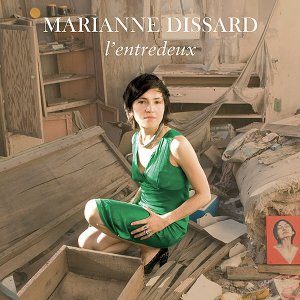 I had never worked with other musicians past the fact of just giving them the lyrics. I had been lucky -- or unlucky -- that way.
I had never worked with other musicians past the fact of just giving them the lyrics. I had been lucky -- or unlucky -- that way.
So with Joey it had been done in way I was used to because I had worked with performers and chorographers and dancers and modern artists. Even in film where you try to convey the mood of a scene you use photographs or music or something that is going to give the idea of the emotional intent. And that was what I was able to give him and then he took it from there.
For him it was a novel way of working because I don’t think he had ever worked like that.
He has certainly provided very interesting settings for your vocals. I can see why the French would say that it wasn’t entirely chanson, but also why Americans might say it wasn’t Americana. It’s a little hard to pigeonhole and I think that is part of its charm.
Yes it’s true, Joey is very curious about music and he never was tempted to do a ‘French’ album -- but you can’t if it’s not your culture and if you are not in France, even to go toward that direction. One thing that happened with the sound engineer [Craig Schumacher] who mixed the album, he doesn’t speak French so he would mix voices in way that’s going to be lower volume-wise because he doesn’t understand the words. So right there the voice becomes like another instrument.
For example, the French way of speaking there is a lot of sibilants and I do have those when I sing, especially when the microphone can pick up everything. So that being what was there for Craig to work from, he started pulling out all the S’s and used the effects that would get rid of those. In a few places it was like I was hearing something that was not actually French anymore, I was not understanding the words, they were not understandable for someone who speaks French.
That adds a layer of mystery to it though?
Yeah.
Was there any intention or suggestion that you might want to sing in English?
We toyed with the idea of doing English versions and having the album available in French and English, but after a while it seemed more like a gimmick than anything else. And anyway this album and what I had to say was in French, because when you get personal with stuff and the voice is from the heart it was for me French and not English.
I agree with you, there is no need to compromise on that.
Yeah, and I love writing in English, it is such an elastic language. But that would have been a different story.
I see on tour you play the saw.
[Laughs] A little bit. Part of my situation here is I never learned an instrument and when we get together everyone around is a musician, my neighbours and friends. So when we get together around a campfire or at a party, people bring their instruments like a guitar or violin -- and then they all start singing American standards because they have grown up in this country -- and I am out of that. I stand around going, ’Well maybe I should just cook’.
Then one day my guitar player picked up this saw he had found at a garage sale and I went, ’hey, nobody around me plays that stuff’. It’s petty hard picking up a guitar when everyone around you plays one so well.
The saw is a beautiful instrument, it has a soaring tone and is almost like a human voice.
Yeah, it is beautiful and very much like that.
I notice also you say you are going to be touring in this part of the world in 2010.
Yes I hope so, the sooner the better. There is nothing definite, no dates. But I am not going to be touring Europe and the US in the first part of next year, so if we do tour it would be Mexico and New Zealand for sure.
I think you would find a receptive audience here. New Zealanders are musically curious and familiar with Calexico.
I’d love to come there.
If you came early next year you’d catch the summer -- although I guess from Tucson you probably don’t need much more sun.
[Laughs] We are the skin cancer capital of the world I think maybe, or that might be Australia.
Sorry, that’s us. We claim that title. Bring a hat.

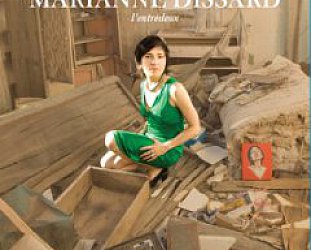
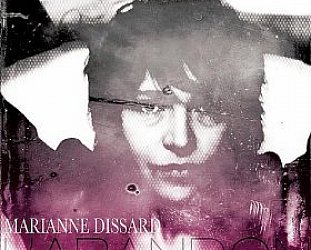
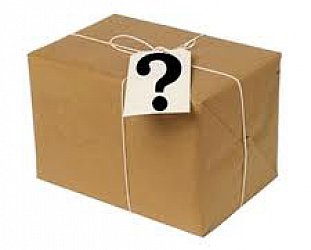
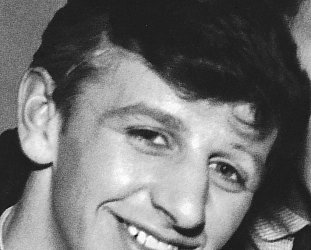
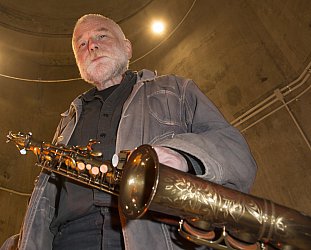
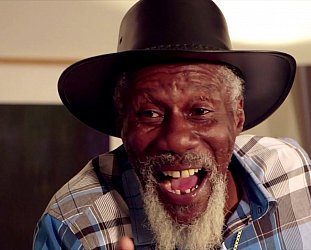
post a comment